Understanding Bipolar Disorder
Learn about bipolar disorder
Bipolar disorder, commonly called “manic depression” is a mental illness that is characterized by intense mood swings, multiple episodes of depression and one (or more) episodes of mania. Affecting 2.5% of the United States (or 6 million people), bipolar disorder is the fifth leading cause of disability worldwide. Bipolar disorders account for three different, yet related, types of mental illness, including bipolar I disorder, bipolar II disorder, and cyclothymia. These disorders vary in the amount of mood swings, the level of depression or mania, and the length of symptomatology.
Bipolar I disorder requires that an individual has at least one manic episode and depressive episodes. These manic episodes can cause abnormally elevated mood and odd behavior that can disrupt daily life. Individuals with bipolar I often cycle between mania and depression, but may experience relatively normal states in between.
Bipolar II disorder is similar to bipolar I in that this mental illness involves moods cycling from high to lower over time. However, for individuals who struggle with bipolar II, the episodes of depression and mania (called “hypomanic episodes” for individuals with bipolar II) are never low or high enough to meet the criteria for bipolar I.
Cyclothymia (or cyclothymic disorder) is the mildest form of bipolar disorder in which episodes of hypomania cycle with mild depression for at least two years, but are not severe enough to be considered bipolar I or bipolar II.
Some individuals have rapid-cycling bipolar disorder, which occurs when an individual has four or more mixed episodes of major depression, mania, hypomania, or mixed symptoms within the span of a year. Rapid-cycling bipolar disorder tends to be more common in individuals with severe bipolar disorder. A mixed state is the combination of depressive symptoms with the energy of mania, which can be an especially dangerous combination for many individuals.
If left untreated, bipolar disorder often worsens with time as the number and length of cycles may become more frequent and severe. As many individuals do not recognize the symptoms of bipolar disorder immediately, there may be a delay in treatment. Additionally, many people with bipolar disorder are reluctant to seek treatment for their illness.
Statistics
Bipolar disorder statistics
In the United States, bipolar disorder affects about 2.5% of the population, or about 6 million people. Most people are diagnosed with bipolar disorder in their teens or early adulthood. Alarmingly, the suicide rate for individuals who have bipolar disorder is 15 times higher than that of the general population.
Co-occurring Disorders
Bipolar disorder and co-occurring disorders
Bipolar disorder is a mental illness that often occurs in the presence of other disorders. Common co-occurring disorders include:
- Substance abuse
- Alcoholism
- Anxiety disorders
- ADHD
- Conduct disorders
- Disruptive disorders
- Metabolic syndrome
- Migraine headaches
Causes and Risk Factors
Causes and risk factors of bipolar disorder
The precise cause for the development of bipolar disorders remains unknown. It is thought that bipolar disorder is the result of a number of factors working interchangeably. These factors include:
Genetic: Bipolar disorder often runs in families so researchers are looking into the relationship between genetics and bipolar disorder. It is known that children who have a parent or sibling with bipolar disorder are six times more likely to develop bipolar disorder than others with no history of the disorder.
Brain Chemistry: There are differences in the brain scans of individuals who have bipolar disorder and those who do not.
Psychological: Many individuals who struggle with bipolar disorder have a co-occurring mental illness. Often, these individuals will attempt to self-medicate the symptoms of the mental illness using drugs or alcohol, which can lead to substance abuse problems.
Signs and Symptoms
Signs and symptoms of bipolar disorder
The symptoms of bipolar disorders will vary upon the specific type of bipolar disorder and the person who is struggling with the condition. Symptoms have been broken down into those experienced during a manic phase or depressive phase.
Mania/Hypomania Symptoms (less acute in those with bipolar disorder):
- Speaking loudly
- Feeling high
- Behaving jumpy or wired
- Easily distracted
- Taking on new projects
- Restlessness
- Unrealistic belief in one’s ability
- Acting impulsively
- Overly happy, outgoing mood
- Irritable mood
- Increased energy
- Decreased need for sleep
- Inflated self-image
- Increased libido
- Risky sexual behaviors
- Substance use and abuse
- Rapid, pressured speech
- Speech and thought flying from one thing to the next
- Extreme spending
Depressive Symptoms:
- Feeling tired
- Extreme worries
- Feeling empty
- Loss of interest in previously enjoyed activities
- Difficulty concentrating
- Restlessness
- Irritability
- Change in eating, sleeping, or other habits
- Feeling “slowed down”
- Thoughts of death and suicide
During very severe episodes of mania or depression, an individual who has bipolar disorder may also experience a far more disturbing condition: psychosis. Psychosis is a state of detachment from reality that can occur for a short or long while. Psychosis from bipolar disorder can manifest in two forms:
- Delusions – the strong attachment to incorrect but very realistic beliefs
- Hallucination – any sensory perception that is experienced with a lack of stimuli
Effects
Effects of bipolar disorder
The effects of untreated bipolar disorder can be shattering, leaving virtually no part of life unaffected. The effects can range in intensity from minor to devastating depending on the individual. If an individual seeks treatment for bipolar disorder before the manic and depressive episodes have grown more severe, the effects for that person may be much milder. Weeks upon months of unpredictable behavior can take its toll on loved ones, co-workers, friends, and family of individuals with untreated bipolar disorder, as the person may become unreliable during these states.
The most common effects of untreated bipolar disorder include the following:
- Job loss
- Economic ruin
- Loss of interpersonal relationships
- STD’s from unprotected, risky sexual escapades
- Other medical conditions
- Substance addiction
- Alcoholism
- Consequences from high-risk manic behaviors
- Worsening symptoms of bipolar disorder
- Self-harm – cutting, burning, or other forms of self-mutilation
- Suicidal ideation
- Suicide













